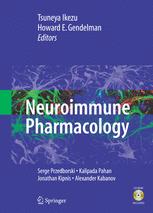

Most ebook files are in PDF format, so you can easily read them using various software such as Foxit Reader or directly on the Google Chrome browser.
Some ebook files are released by publishers in other formats such as .awz, .mobi, .epub, .fb2, etc. You may need to install specific software to read these formats on mobile/PC, such as Calibre.
Please read the tutorial at this link: https://ebookbell.com/faq
We offer FREE conversion to the popular formats you request; however, this may take some time. Therefore, right after payment, please email us, and we will try to provide the service as quickly as possible.
For some exceptional file formats or broken links (if any), please refrain from opening any disputes. Instead, email us first, and we will try to assist within a maximum of 6 hours.
EbookBell Team

4.4
72 reviewsThe chapters contained in this volume show scientific relationships among historically separated fields. This allows a unique opportunity for scientists and students to gain broad knowledge in disparate fields of clinical medicine and biomedical research. Overall, the text integrates cutting-edge neuroscience, immunology, pharmacology, neurogenetics, neurogenesis, gene therapy, adjuvant therapy, proteomics, and magnetic resonance imaging. It is a rich harvest and readers will gain a perspective that has not been readily available. Exposure to such a wealth of ideas is bound to inspire readers to undertake new and productive research initiatives. In summary, this is a volume not to be put on the shelf as a reference, but to be read cover to cover by aspiring neuroscientists.
Dr. Patrick L. McGeer
Professor Emeritus
Kinsmen Laboratory of Neurological Research, University of British Columbia
This exciting new textbook, Neuroimmune Pharmacology, reflects the history and vision of the Society on NeuroImmune Pharmacology and of the Society’s official publication, the Journal of Neuroimmune Pharmacology. All three represent deliberations arising from a relatively young, interdisciplinary, and dynamic field of research, which have major translational implications for neurodegenerative, neuroinflammatory, neuropsychiatric diseases, and infections of the nervous system. They all demonstrate the synergistic value of integrating the parts: Neuroscience, Immunology, and Pharmacology. The extraordinary accomplishment of Neuroimmune Pharmacology is its comprehensive nature. It will be enthusiastically welcomed by members of the Society and will serve as the definitive resource for all students and researchers interested in various topics that are so well covered in the book.
Dr. Phillip K. Peterson
President, Society on NeuroImmune Pharmacology
Professor, Department of Medicine, University of Minnesota